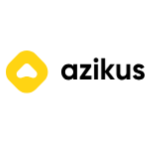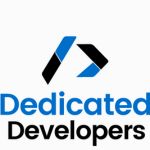
Top Housing Software Development Companies
Welcome to our comprehensive guide to the top Housing Software Development Companies! In today’s dynamic real estate market, technology plays a vital role in streamlining processes, enhancing efficiency, and delivering exceptional experiences for property management and housing professionals. Our curated list features the leading companies specializing in developing innovative software solutions tailored specifically for the housing industry. From property management systems and real estate CRM platforms to rental management software and housing market analytics tools, these companies offer a diverse range of products and services to meet the unique needs of housing professionals and organizations. With detailed reviews and insights, we empower you to make informed decisions and choose the best partner for your housing software needs.
List of the Best Housing Software Development Companies

-
Employees: 50 - 249
-
Min. Project amount: $5,000+
-
Country: Toronto, Canada

Atta Systems
-
Employees: 10 - 49
-
Min. Project amount: $50,000+
-
Country: București, Romania

Molfar.io
-
Employees: 10 - 49
-
Min. Project amount: $5,000+
-
Country: Dnipro, Ukraine

Appetizer Mobile
-
Employees: 10 - 49
-
Min. Project amount: $50 - $99 / hr
-
Country: NY, United States

Dogtown Media
-
Employees: 10 - 49
-
Min. Project amount: $25,000+
-
Country: CA, United States

Azikus
-
Employees: 10 - 49
-
Min. Project amount: $5,000+
-
Country: Zagreb, Croatia

Dedicated Developers
-
Employees: 10 - 49
-
Min. Project amount: $25,000+
-
Country: GA, United States

Lickability
-
Employees: 2 - 9
-
Min. Project amount: $25,000+
-
Country: NY, United States

hedgehog lab
-
Employees: 50 - 249
-
Min. Project amount: $100,000+
-
Country: Tyne, United Kingdom

Busy Human
-
Employees: 2 - 9
-
Min. Project amount: $1,000+
-
Country: UT, United States
** Buyer's Guide **
- 1. What types of housing software solutions do these companies offer?
- 2. Can housing software solutions be customized to meet the specific needs of my property management business or real estate agency?
- 3. How user-friendly are the housing software solutions for property managers, real estate agents, and tenants?
- 4. Can housing software solutions integrate with existing systems and third-party applications used by my property management business or real estate agency?
1.What types of housing software solutions do these companies offer?
Top housing software development companies offer a variety of solutions tailored to the real estate industry, including property management systems, real estate CRM platforms, rental management software, housing market analytics tools, and online listing platforms..
Delving into Housing Software Solutions: A Spectrum of Options
The real estate industry thrives on technology, and housing software development companies offer a diverse range of solutions to streamline operations, enhance efficiency, and empower stakeholders across the spectrum. Here’s a closer look at some of the most common types of housing software solutions:
1. Property Management Systems (PMS):
- The Workhorse of Property Management: A PMS acts as the central nervous system for property management companies. It manages essential tasks like tenant screening, lease agreements, rent collection, maintenance requests, work order management, and financial reporting.
- Features: Look for functionalities such as online rent payments, tenant portals, vacancy advertising tools, and integrations with accounting software.
2. Real Estate CRM Platforms (Customer Relationship Management):
- Building Relationships, Boosting Leads: A real estate CRM helps manage client interactions, track leads, nurture relationships with potential buyers or renters, and automate marketing campaigns.
- Features: CRM platforms offer contact management, lead scoring, email marketing tools, and reporting dashboards to gain insights into sales and marketing performance.
3. Rental Management Software:
- Tailored for Rentals: For landlords and property managers focused on rentals, specialized rental management software streamlines lease agreements, tenant screening, rent collection, security deposit management, and maintenance requests.
- Features: These solutions often integrate with online listing platforms and background check services to expedite the rental process.
4. Housing Market Analytics Tools:
- Data-Driven Decisions: Gain valuable insights into market trends, property valuation, rental pricing strategies, and competitor analysis with housing market analytics tools.
- Features: These tools leverage market data, demographics, and AI to provide actionable insights to inform investment decisions, optimize pricing strategies, and identify lucrative opportunities.
5. Online Listing Platforms:
- Reaching the Right Audience: In today’s digital world, online listing platforms are crucial for showcasing properties to potential buyers or renters. These platforms allow for property listings, virtual tours, lead capture functionalities, and communication tools.
- Features: Look for platforms that integrate with social media channels, syndication to major real estate websites, and provide analytics to track listing performance.
Beyond these core offerings, many companies provide:
- Customizable Solutions: Tailor software functionalities to meet the specific needs of your property management company, brokerage, or real estate investment firm.
- Mobile Applications: Empower property managers, tenants, and buyers with mobile apps for on-the-go access to key functionalities.
- Integrations: Ensure seamless data exchange between your housing software solution and existing systems like accounting software, marketing automation tools, and background check services.
By understanding the range of housing software solutions available, you can select the ones that perfectly align with your real estate needs, boost operational efficiency, enhance the customer experience, and gain a competitive edge in the dynamic housing market.
2.Can housing software solutions be customized to meet the specific needs of my property management business or real estate agency?
Yes, reputable housing software development companies understand that each property management business or real estate agency has unique requirements. They typically offer customizable solutions that can be tailored to align with specific workflows, property types, and business objectives.
Customization is a major advantage offered by leading housing software development companies. Here’s a deeper dive into how they can tailor solutions to perfectly match the specific needs of your property management business or real estate agency:
One-Size Doesn’t Fit All: Tailoring Housing Software to Your Unique Business
The beauty of working with a qualified housing software development company lies in their ability to create solutions that perfectly complement your business model. Here’s how customization comes into play:
Understanding Your Business: The development process kicks off with a thorough needs assessment. The company will work with you to understand your specific workflows, property types you manage (residential, commercial, etc.), the size of your operation, and any unique requirements you may have.
Modular Design and Feature Selection: Many property management systems (PMS) and real estate CRM platforms come equipped with modular components. These components can be selected and configured to match your specific functionalities and user needs. For instance, a property management company specializing in high-end rentals might prioritize features for managing tenant screening, while a large-scale commercial real estate agency might require functionalities for lease administration and tenant billing for various commercial property types.
Custom Development: For highly specialized needs or unique integrations with existing systems, some companies offer custom development services. This allows them to create bespoke software features or functionalities that cater to your specific requirements. For example, a property management company managing student housing might require a custom module for roommate matching, while a real estate agency might need a custom integration with a specific lead generation platform they utilize.
Workflow Automation: The software can be customized to automate repetitive tasks within your workflows, such as sending lease renewal reminders or generating routine maintenance reports. This streamlines operations and frees up your staff to focus on higher-value activities.
Reporting and Analytics: Customization extends to reports and analytics functionalities. The software can be configured to generate reports that provide insights relevant to your specific business. For instance, a property management company might prioritize reports on vacancy rates and maintenance costs, while a real estate agency might focus on lead conversion rates and agent performance metrics.
Benefits of Customization:
- Optimized Operations: Streamlined workflows and automated tasks enhance efficiency and reduce administrative burdens on your staff.
- Improved Client Service: Cater to the specific needs of your tenants or clients with features tailored to their experience.
- Competitive Advantage: Unique functionalities or integrations can differentiate you from competitors and attract new clients.
Finding the Right Fit:
Discuss Customization Options: When evaluating potential housing software development companies, inquire about their customization capabilities. Discuss your specific needs and ensure they have the expertise to tailor their solutions accordingly.
Case Studies and References: Review case studies showcasing how the company has customized solutions for clients in similar sectors of the real estate industry (property management, brokerage, etc.). Speak to references to gain insights into their experience with the customization process.
By partnering with a housing software development company that prioritizes customization, you can ensure that your property management business or real estate agency benefits from software solutions that perfectly align with your unique needs, optimize workflows, empower your staff, and ultimately elevate your success in the real estate market.
3.How user-friendly are the housing software solutions for property managers, real estate agents, and tenants?
The best housing software solutions are designed to be intuitive and user-friendly, with interfaces that are easy to navigate for property managers, real estate agents, and tenants alike. Look for companies that prioritize usability and provide comprehensive training and support resources.
User-friendliness is crucial for housing software solutions, catering to a range of users with varying technical backgrounds. Here’s how leading housing software development companies ensure their solutions are user-friendly for everyone:
Bridging the Tech Gap: Making Housing Software Easy for All Users
Effective housing software empowers property managers, real estate agents, and tenants to leverage its functionalities without getting bogged down by complex interfaces. Here’s what to look for:
Intuitive Interface Design: Clean and user-friendly interfaces are key. Menus, buttons, and functionalities should be logically organized and easy to understand for users with varying technical skills. Property managers and real estate agents should be able to manage tasks and access data efficiently. Tenants should be able to submit maintenance requests, pay rent, and access important documents effortlessly.
Role-Based Dashboards: The software should present users with dashboards tailored to their specific roles. Property managers might see functionalities for rent collection and vacancy management, while real estate agents might have dashboards focused on lead nurturing and property listings. Tenants would see options for rent payments, maintenance requests, and communication with their landlord or property manager.
Minimal Training Requirements: Ideally, the software should be intuitive enough to learn quickly with minimal training. Look for solutions that offer clear in-app tutorials and readily available user guides to guide users through key functionalities.
Multiple Support Options: Comprehensive training and support resources are essential. Look for companies that offer multiple support channels (phone, email, online chat) to address user queries and troubleshoot any issues promptly.
Tailoring the Tenant Experience:
Mobile Apps: Many housing software solutions offer mobile apps for tenants, allowing them to conveniently manage their rental experience on-the-go. Look for apps with features for rent payments, maintenance requests, lease document access, and communication with property managers.
Multilingual Support: For properties with a diverse tenant population, consider solutions that offer multilingual support in the most commonly used languages within your area. This fosters inclusivity and ensures all tenants can easily navigate the software.
Benefits of User-Friendly Housing Software:
Increased User Adoption: Easy-to-use software ensures higher adoption rates among property managers, real estate agents, and tenants, maximizing the software’s value.
Improved Efficiency: Intuitive interfaces and streamlined workflows empower users to complete tasks quickly and efficiently, saving time and reducing errors.
Enhanced Communication: User-friendly features for tenants, like maintenance request portals and communication tools, foster better communication and transparency between tenants and property managers/real estate agents.
Finding the Perfect Fit:
Request Demos and Free Trials: Many companies offer free trials or demo sessions to allow you to experience the software firsthand and assess its user-friendliness for yourself and your potential users (staff and tenants).
User Reviews and Ratings: Read online reviews and ratings to gain insights from existing users about the software’s ease of use and any user interface challenges they encountered.
By prioritizing user-friendly design, comprehensive training, and ongoing support, leading housing software development companies ensure their solutions empower all users – property managers, real estate agents, and tenants – to leverage the software’s functionalities effectively, streamline processes, and ultimately enhance the overall experience within the real estate industry.
4.Can housing software solutions integrate with existing systems and third-party applications used by my property management business or real estate agency?
Yes, top housing software development companies offer solutions that are designed to integrate seamlessly with existing systems and third-party applications, such as accounting software, CRM platforms, and online payment gateways. Integration capabilities ensure smooth data exchange and interoperability.
Integration is a cornerstone of modern housing software solutions. Here’s how these solutions connect seamlessly with the technological ecosystem of your property management business or real estate agency:
Building Bridges: Streamlining Operations with Seamless Integrations
No property management business or real estate agency operates in isolation. Modern housing software solutions understand this and are designed to integrate harmoniously with your existing systems and third-party applications:
Accounting Software: Integrate your housing software with accounting software to streamline tasks like rent payments, generating invoices, managing accounts payable and receivable, and general ledger management. This eliminates the need for manual data entry and ensures consistency across your financial data.
CRM Platforms: For real estate agencies, customer relationship management (CRM) platforms are essential. Integration with your housing software allows you to manage client interactions, track leads, nurture relationships, and automate marketing campaigns.
Online Payment Gateways: Secure online transactions are crucial for rent collection and other payments. Integrate your housing software with online payment gateways like PayPal or Stripe to enable tenants or clients to pay rent, fees, and deposits conveniently and securely.
Background Check Services: Expedite the tenant screening process by integrating your housing software with background check services. This allows you to verify applicant information and make informed decisions quickly.
Marketing Automation Tools: Streamline your marketing efforts by integrating your housing software with marketing automation tools. This enables you to create targeted email campaigns, manage social media advertising, and track the performance of your marketing initiatives.
Listing Platforms: For property management companies and real estate agencies, advertising vacancies is essential. Integrate your housing software with online listing platforms like Zillow, Trulia, or Realtor.com to showcase your properties to a wider audience and attract potential tenants or buyers.
Other Third-Party Applications: The property management and real estate industries leverage a vast array of third-party applications. Look for housing software that offers open APIs (application programming interfaces) to connect with these applications, ensuring smooth data exchange and enhanced functionalities.
Benefits of Seamless Integration:
Automated Workflows: Automate data exchange between your various systems, eliminating manual data entry and reducing processing times.
Improved Efficiency: Integrated solutions foster smoother information flow, optimizing operational efficiency and boosting productivity.
Enhanced Data Accuracy: Seamless integrations ensure data accuracy and consistency across all your platforms, minimizing errors and discrepancies.
Streamlined User Experience: Integrations with tenant portals or communication tools empower you to provide a more convenient and efficient experience for your tenants or clients.
Finding the Right Integration Fit:
Evaluate API Capabilities: When evaluating housing software development companies, inquire about their API integration capabilities. Ensure they offer open APIs that can connect with the specific systems and applications you utilize in your business.
Discuss Integration Needs: Clearly communicate your integration requirements to potential software vendors. This allows them to assess your needs and propose solutions that ensure seamless interoperability with your existing infrastructure.
By prioritizing integration capabilities, you can ensure that your new housing software solution integrates seamlessly with your existing systems and third-party applications. This fosters a unified technological ecosystem that streamlines operations, enhances efficiency, and empowers you to deliver exceptional service to your tenants, clients, and staff.



